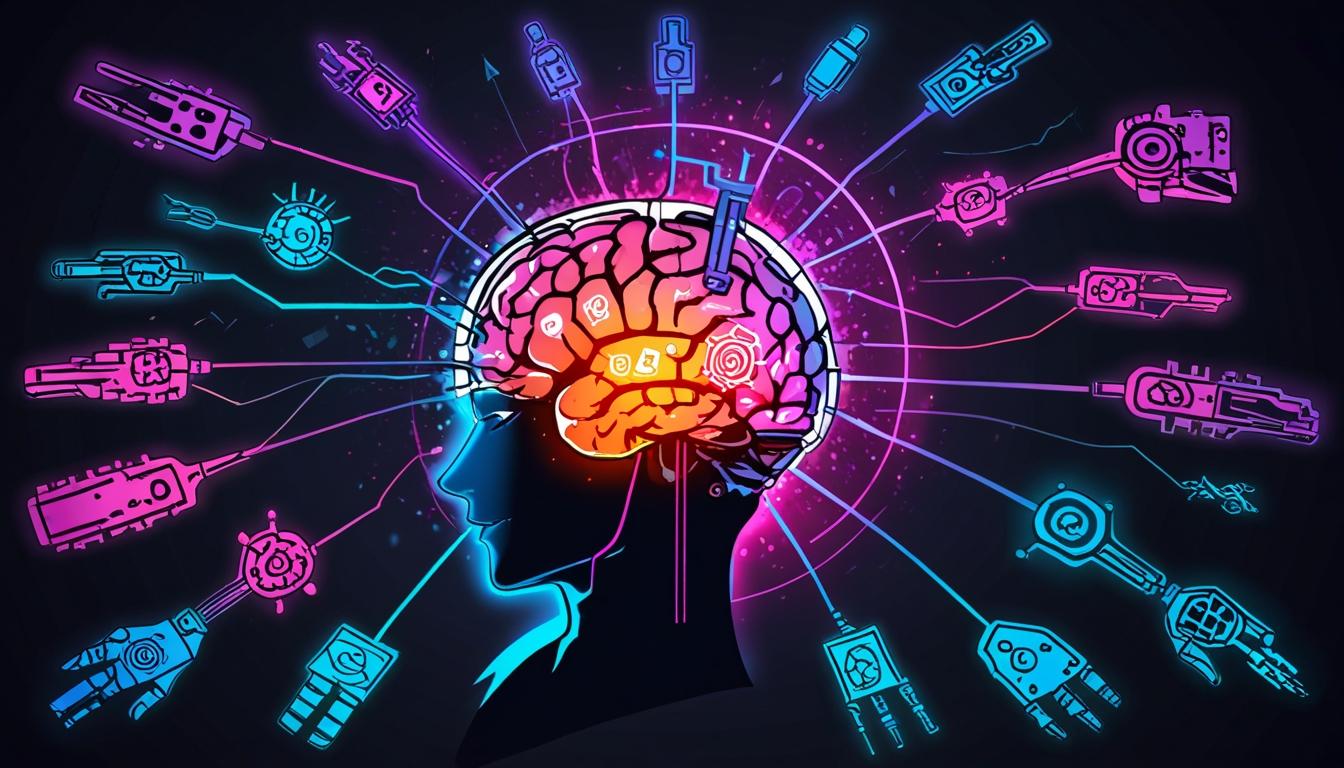Capgemini’s latest Conversations for Tomorrow report highlights how generative AI, cybersecurity challenges, nuclear energy advances, and ethical technology adoption will redefine business landscapes and drive future growth.
Understanding the Tech Landscape of 2025: Key Trends for Organisations
As we look towards 2025, the intersection of technology and business is becoming increasingly intricate, highlighting the need for organisations to remain agile and informed. The latest edition of Conversations for Tomorrow, a pivotal report by Capgemini, sheds light on emerging technological trends that are poised to reshape businesses and society alike. This comprehensive review provides insights into the priorities and innovations that will define the future through the lens of business leaders.
Prominent among the trends discussed is the continuing evolution of artificial intelligence, particularly generative AI and agentic AI. These technologies are not only revolutionising operational efficiency but are also expected to play a significant role in enhancing cybersecurity measures. Recent findings suggest that a staggering 70% of executives regard AI agents as fundamentally transformative by 2025, with 85% of investors aligned in this view. This growing reliance on AI underscores the pressing need for robust cybersecurity frameworks, especially given the rising sophistication of cyber threats.
Concerns around cybersecurity are echoed in discussions from industry events like the RSA Conference, where experts raised alarms about the vulnerabilities associated with autonomous AI agents. These agents, if left unprotected, pose risks not only to organisational data integrity but also to national security. As highlighted in the Axios report, the stakes are high; inadequate identity management can lead to significant data breaches, necessitating a proactive approach in safeguarding these digital entities.
Moreover, the advancements in nuclear energy, specifically through small modular reactors, provide an innovative solution to the world’s growing energy demands. As traditional energy sources become unsustainable, these new technologies are gaining traction, contributing to a more resilient energy landscape. This development is complemented by the rise of AI-assisted supply chains, which promise increased agility and sustainability in operations—an essential feature in today’s rapidly changing market.
The report also touches on innovation in robotics and their integration into various sectors, extending beyond mere automation to collaborative roles within the workforce. This shift not only enhances productivity but also fosters workplace environments where human and machine collaboration is seamless. This evolving landscape reflects a broader trend in which organisations must adapt their strategies to effectively leverage advanced technologies while cultivating a skilled workforce that can thrive alongside them.
Furthermore, the growing opportunities in cloud computing are noteworthy, with projections indicating a robust growth trajectory that could see the sector reach a staggering $939 billion by 2025. This growth is propelled by the rise of communication-platform-as-a-service (CPaaS) solutions and the pervasive integration of new technologies in everyday business operations.
As organisations gear up for this technological renaissance, the emphasis on ethical and transparent AI systems cannot be overstated. The demand for accountable AI that adheres to regulatory standards is becoming increasingly prevalent, with industries ranging from healthcare to finance realising the critical importance of trust in technological solutions.
In summary, the insights derived from the Conversations for Tomorrow report encapsulate a future where technology is integral to the fabric of business strategy. From AI to nuclear energy, companies must be prepared to navigate a complex array of innovations to remain competitive and sustainable in a dynamic environment. Adopting a proactive stance on emerging technologies, while focusing on ethical considerations, will undoubtedly shape the success of organisations in the years to come.
Reference Map:
- Paragraph 1 – [[1]](https://www.capgemini.com/dk-en/insights/research-library/conversations-for-tomorrow-10-tech-trends/), [[2]](https://www.capgemini.com/us-en/insights/research-library/top-tech-trends-2025/)
- Paragraph 2 – [[2]](https://www.capgemini.com/us-en/insights/research-library/top-tech-trends-2025/), [[3]](https://www.axios.com/2025/05/06/ai-agents-identity-security-cyber-threats), [[4]](https://www.itpro.com/security/live/rsac-conference-2025-live-all-the-latest-news-and-updates)
- Paragraph 3 – [[1]](https://www.capgemini.com/dk-en/insights/research-library/conversations-for-tomorrow-10-tech-trends/), [[2]](https://www.capgemini.com/us-en/insights/research-library/top-tech-trends-2025/)
- Paragraph 4 – [[1]](https://www.capgemini.com/dk-en/insights/research-library/conversations-for-tomorrow-10-tech-trends/), [[5]](https://www.popai.pro/educationAsset/resources/top-2025-technology-trends-what-to-expect-in-the-new-year/)
- Paragraph 5 – [[1]](https://www.capgemini.com/dk-en/insights/research-library/conversations-for-tomorrow-10-tech-trends/), [[6]](https://www.datamintelligence.com/blogs/technology-trends-2025-outlook-ai-quantum-5g-iot)
- Paragraph 6 – [[5]](https://www.popai.pro/educationAsset/resources/top-2025-technology-trends-what-to-expect-in-the-new-year/), [[7]](https://www.elantis.com/top-tech-trends-shaping-2025-ai-accessibility)
Source: Noah Wire Services
- https://www.capgemini.com/dk-en/insights/research-library/conversations-for-tomorrow-10-tech-trends/ – Please view link – unable to able to access data
- https://www.capgemini.com/us-en/insights/research-library/top-tech-trends-2025/ – Capgemini’s ‘Top Tech Trends 2025’ report identifies key technologies shaping the future, including generative AI, AI in cybersecurity, AI-driven robotics, nuclear energy advancements, and AI-assisted supply chains. The report highlights that 70% of executives and 85% of investors consider AI agents as top impactful technologies for 2025. It also emphasizes the growing role of AI in cybersecurity and the resurgence of nuclear energy, particularly small modular reactors, to meet increasing energy demands. Additionally, the report discusses the evolution of supply chains with AI integration for enhanced agility and sustainability.
- https://www.axios.com/2025/05/06/ai-agents-identity-security-cyber-threats – Axios reports on the emerging cybersecurity risks associated with autonomous AI agents used in business operations. The article highlights the need for securing these agents’ identities to prevent data breaches and misuse of credentials. Security vendors are working to implement protective measures, as emphasized at the recent RSA Conference. Experts warn that if not managed correctly, AI agents could inadvertently compromise sensitive data or systems, underscoring the importance of robust identity management in AI-driven environments.
- https://www.itpro.com/security/live/rsac-conference-2025-live-all-the-latest-news-and-updates – ITPro provides live updates from the RSA Conference 2025, focusing on AI’s transformative impact on cybersecurity. Discussions centered around agentic AI, autonomous security systems, and the need for standardized security frameworks. Cisco unveiled an open-source AI security model to empower the community. The event underscored the pressing need to embrace AI responsibly, promoting security without succumbing to hype, and fostering global collaboration to outpace evolving cyber threats.
- https://www.popai.pro/educationAsset/resources/top-2025-technology-trends-what-to-expect-in-the-new-year/ – PopAi discusses the top technology trends for 2025, emphasizing advancements in AI, robotics, and cybersecurity. The article highlights the emergence of agentic AI systems capable of autonomous decision-making, the evolution of robotics beyond automation into collaboration, and the increasing sophistication of cybersecurity threats and innovations. It also touches upon the growth and diversification of cloud computing, noting its expected 14.3% growth, reaching $939 billion in 2025, and the rise of communication-platform-as-a-service (CPaaS) as a high-growth area.
- https://www.datamintelligence.com/blogs/technology-trends-2025-outlook-ai-quantum-5g-iot – DataM Intelligence outlines key technology trends shaping 2025, including AI, quantum computing, 5G, and IoT. The article highlights the global rollout of 5G networks as a foundation for technological advancement, enabling expansive IoT ecosystems, smart cities, autonomous vehicles, and immersive AR/VR experiences. It also discusses the rise of edge computing, projected to reach $90 billion by 2025, enabling real-time data processing and addressing privacy concerns by localizing data processing closer to its source.
- https://www.elantis.com/top-tech-trends-shaping-2025-ai-accessibility – Elantis explores top tech trends shaping 2025, focusing on AI, automation, cloud, and security. The article discusses the evolution of generative AI beyond content creation, transforming industries such as drug discovery, manufacturing, personalized healthcare, and finance. It also highlights the increasing emphasis on transparent and ethical AI to meet regulatory standards, ensuring AI systems’ decisions are understandable and trustworthy. Additionally, the article covers trends in automation, cloud computing, and security, including zero trust architecture and quantum-safe cryptography.
Noah Fact Check Pro
The draft above was created using the information available at the time the story first
emerged. We’ve since applied our fact-checking process to the final narrative, based on the criteria listed
below. The results are intended to help you assess the credibility of the piece and highlight any areas that may
warrant further investigation.
Freshness check
Score:
9
Notes:
The content is recent, referencing trends and projections for 2025. However, it does not specify a precise date of publication within the provided text.
Quotes check
Score:
10
Notes:
There are no direct quotes in the text, eliminating the risk of repeated material.
Source reliability
Score:
8
Notes:
The narrative originates from Capgemini, a reputable consulting firm. However, the lack of diversity in sources (primarily referencing their own report) somewhat reduces confidence.
Plausability check
Score:
9
Notes:
The trends discussed are plausible and align with current technological advancements. Recent events like industry conferences support these claims.
Overall assessment
Verdict (FAIL, OPEN, PASS): PASS
Confidence (LOW, MEDIUM, HIGH): HIGH
Summary:
The narrative is mostly reliable due to its recent content, absence of direct quotes, and origin from a reputable firm. However, relying heavily on internal reports reduces its overall credibility slightly.













